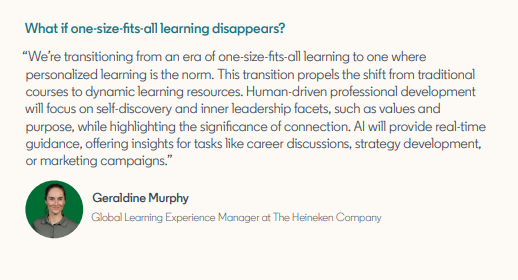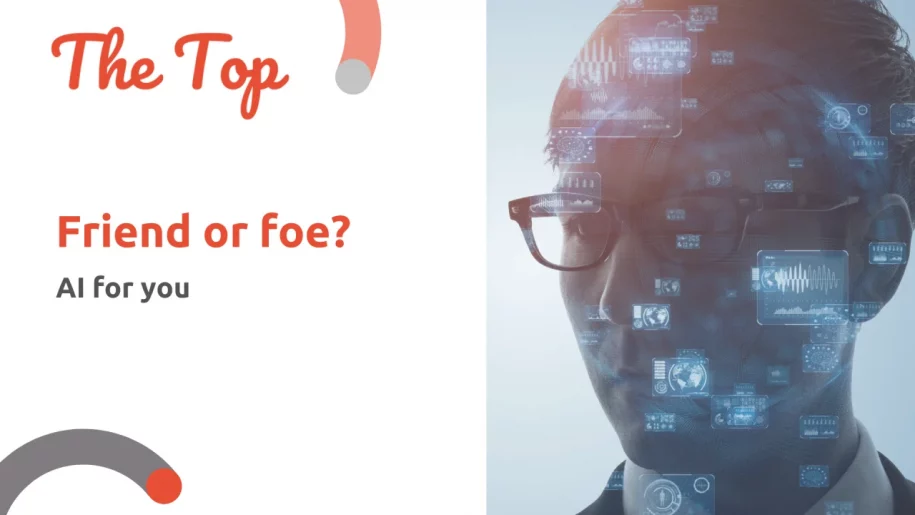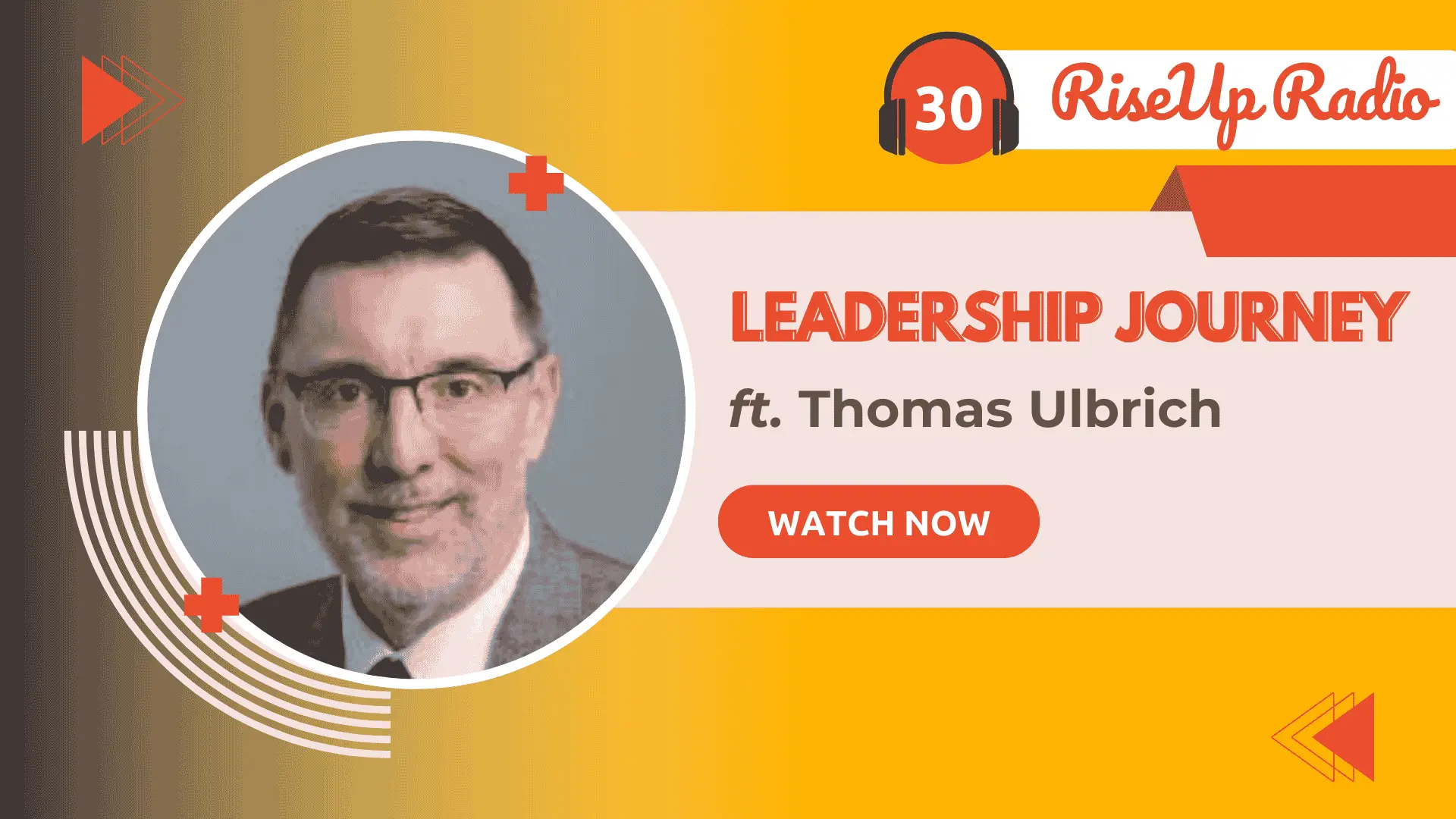Friend or foe? AI for you
Geraldine Murphy , Global Learning Experience Manager at The Heineken Company, shared an interesting insight in the last edition of LinkedIn’s Workplace Learning Report.While talking of a move away from one-size-fits-all training, her vision called for a major shift from traditional leadership training to a dynamic mode of delivering leadership development resources.

She discussed two major facets in this equation: the human-led leadership transformation focuses on deep inner work, such as values and purpose.
Do you want to guess what made the other half?
AI
Contrary to popular fear (or expectations or hopes), AI is not set to replace humans. Instead, it’s here to empower humans. It does so in leadership development and coaching by solving for the lack of real-time guidance and insights.
Suppose you don’t have a coach (as most leaders don’t) but do have a people management challenge (as most leaders do)—what’s the way out? AI-powered coaching solutions like Risely’s Merlin bridge this gap effectively through coaching at the point of need.
At first glance, solutions like this seem unreal.
Can an AI ever understand how annoying Karen from Finance is? Can it handle Smith’s mood swings as well as I do?
We’ll let you figure it out here with Merlin for free. Start a role play with your frenemy colleague and let us know.
Amid the threat of job loss due to AI, there are also positive signals, like Asana’s report that 65% of employees understand human-centered AI and believe it will be helpful at work.
In people management roles, what does helpful AI look like?
Is it going to do everything while you relax? Probably not. (Although 1 in 6 US employees ARE open to the idea of having an AI boss)
Instead, AI makes things easier, as discussed in the first use case above of AI coaching.
We always assume and talk about the basics: AI will make data handling and routine administrative work easier, reduce biases, and remove the friction of small tasks.
But there’s more to it; the same report shared that over one-third (37%) of employees want to use AI for creative brainstorming. Going back to Murphy’s statement, we can see the need for brainstorming support even more clearly.
Look at the use cases she refers to, insights for:
- career discussions
- strategy development
- marketing campaigns
All three have one thing in common. They are traditionally high-level human jobs. It is not what we’d ideally like AI to replace. After all, why can’t AI focus on cutting down my laundry while I effectively create value with my solid career plan (final final (2) version.pdf)
AI in people management also works similarly on the creative side. For one, AI coaches can bring skill development to your mobile device and everyone in your organization. It cuts down heavily on the cost of enrolling everyone in a leadership development program and the chase of getting everyone onboard for training that steals their work hours.
That’s not all. AI helps you overcome daily challenges that do not quite fall within the scope of any leadership training. It can address the pesky questions—how do we talk to Rahul about his underperformance? Or how does Brenda plan to meet the deadlines with such slow progress?
An AI coach helps you figure these out with insights or, sometimes, even a role-play.
AI is at work like your co-pilot to drive growth along with you, but it’s currently performing only selective tasks. In the years to come, it is likely to get better, but it still won’t help with laundry.Let’s bring change: one feedback at a time.
We’ve built Candor as a tool to share anonymous feedback from employees with team managers. It’s free. Give it a spin here and start connecting.


